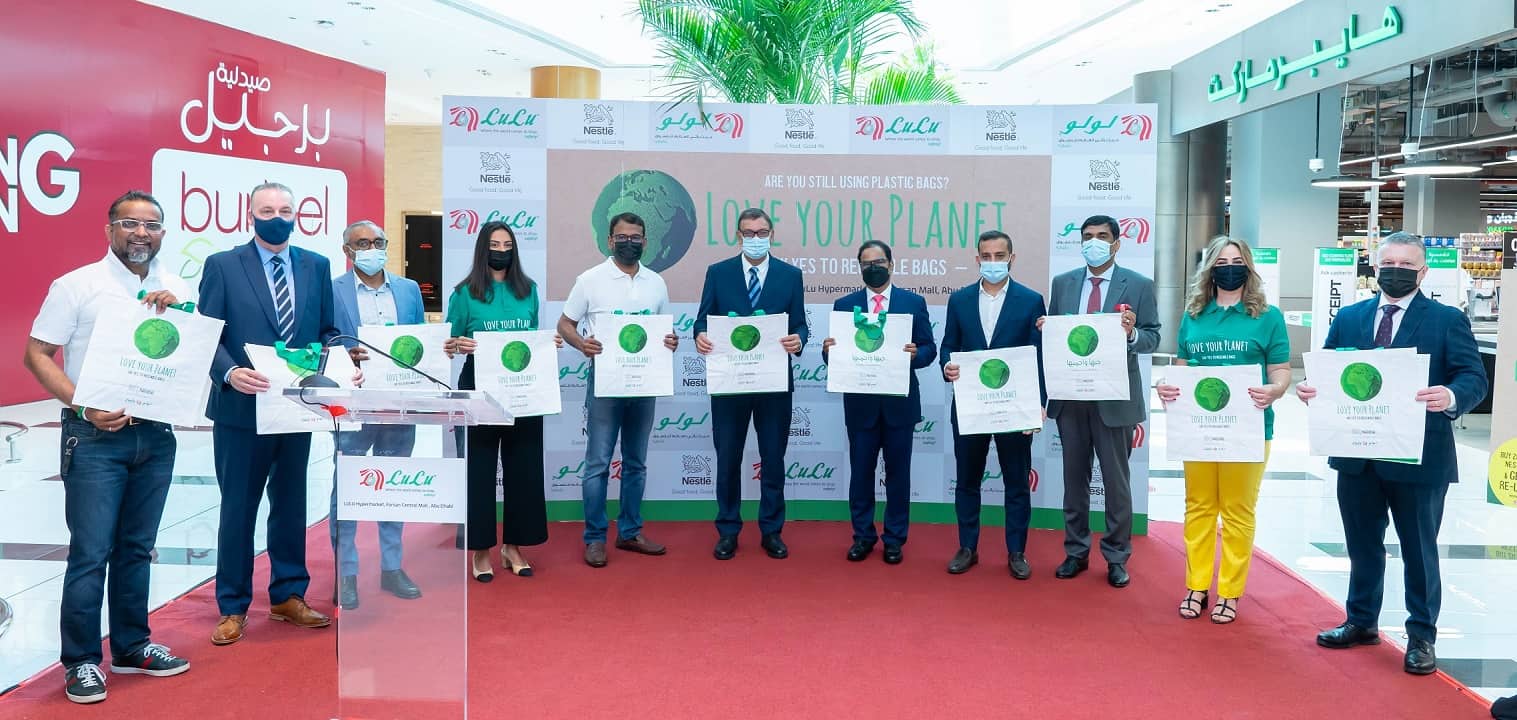- Some 100,000 bags to be provided to shoppers at LuLu
- Nestlé claims to be committed to improving packaging and reducing waste
To commemorate the World Environment Day, Nestlé and Lulu have come together to encourage the use of reusable grocery bags among shoppers, in a campaign across 40 outlets in the United Arab Emirates and on the hypermarket chain’s website.
The collaboration will offer 100,000 reusable grocery bags to LuLu shoppers as part of a campaign entitled “Love your planet, and say YES to re-usable bags” that aims to inspire positive changes in consumer behavior.
“We are committed to making 100% of our packaging recyclable or reusable by 2025, up from more than 85% today, and to reducing our use of virgin plastics by one-third in the same period,” said Rémy Ejel, Chairman & CEO, Nestlé Middle East and North Africa. “We are fully aware however that palpable change that comprehensively tackles plastic waste and truly impacts the planet can only happen through collective efforts– as we all have a role to play and every step counts.”
“We at Lulu are aiming to reduce plastic bags use at our stores by 20% by the end of 2021, and by 100% within the next five years,” said Ashraf Ali, Executive Director, Lulu Group International. “We believe that partnerships between manufactures and retailers are key routes towards achieving our goals, and the best way to encourage positive changes in consumer behavior.”
Nestlé claims to be committed to improving packaging and reducing waste, with the Nestlé Institute of Packaging Sciences, the first of its kind in the food industry, playing an instrumental role in helping the company meet its commitment for all its packaging to be recyclable or reusable by 2025.








